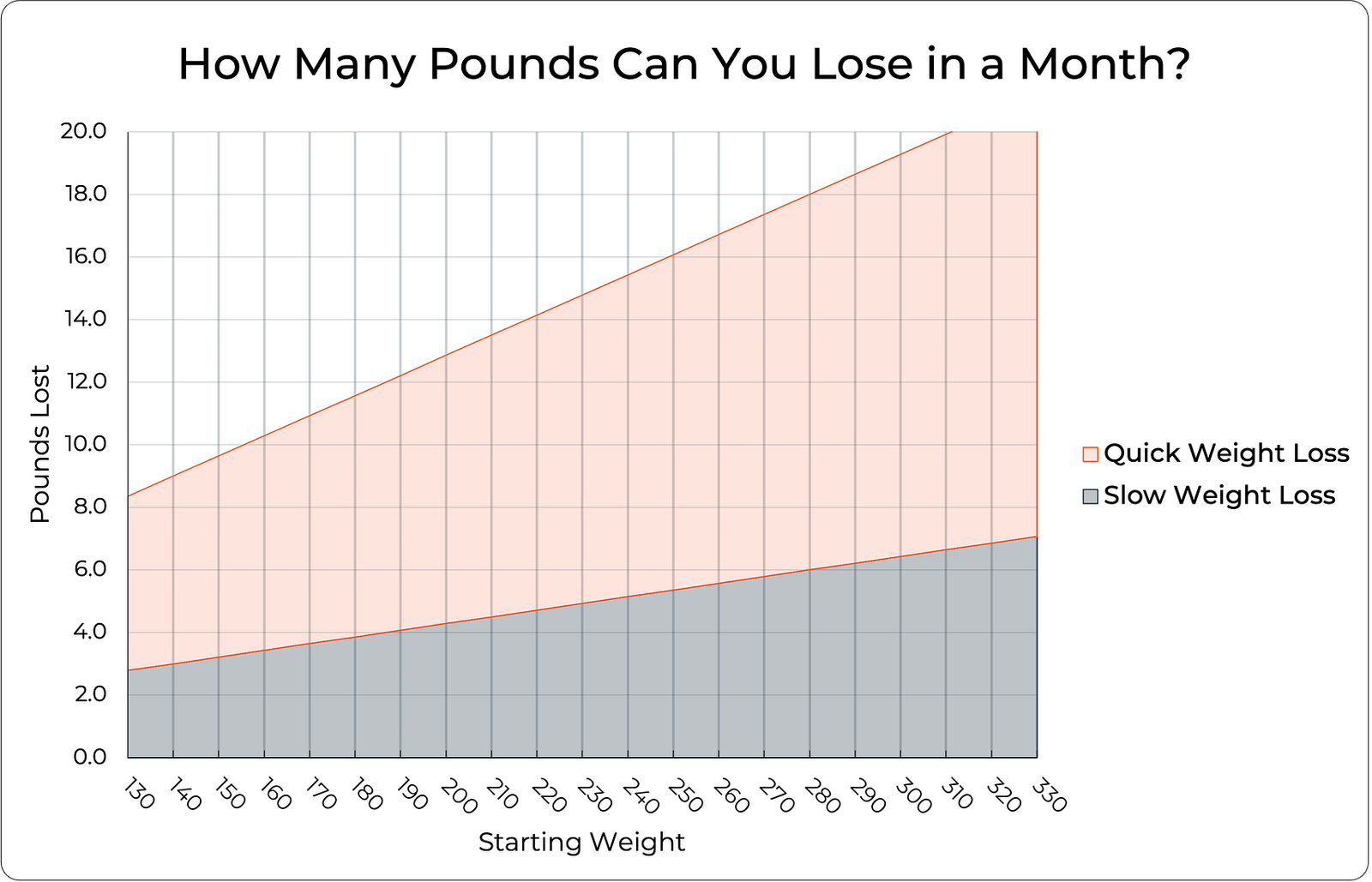Individual Factors Determining Monthly Weight Loss: The Role of Nutrition, Exercise, and Lifestyle
Your journey to losing those extra pounds does not have to be a herculean task. In the article, “Individual Factors Determining Monthly Weight Loss: The Role of Nutrition, Exercise, and Lifestyle,” you’ll discover that weight loss is primarily influenced by unique factors such as your current metabolism, starting weight, and lifestyle choices. Engaging in regular physical activities, getting enough sleep, managing stress appropriately, and significantly altering your nutrition are essential for successful weight loss. The article illuminates how to achieve sustainable weight loss by adopting realistic approaches and avoiding quick fixes that don’t give lasting results. You will find effective strategies such as consistent calorie control, portion tracking using food journals or apps, and a healthy 30-day plan. If you’re looking to shed those stubborn pounds, you’ll find valuable insights into making smarter food choices, increasing your intake of whole foods and hydrating alternatives, and cutting back on processed foods, sugary treats, and calorie-laden toppings. Most importantly, you’ll understand why patience and consistency are paramount in your weight loss journey.

Individualized Weight Loss Journey
Every weight loss journey is as unique as the individual embarking on it. It’s crucial to remember this, especially when you come across those magic diet plans that promise quick, one-size-fits-all solutions.
The Personal Nature of Weight Loss
Weight loss is a deeply personal experience, which is influenced by your lifestyle, genetics, and habits. It’s not just about the number on the scale, but also the relationship you have with food, your body, and your self-esteem. Recognizing this can help make your weight loss journey more compassionate and self-accepting.
Importance of Individual Factors in Weight Loss
Your age, gender, metabolism, genetics, body composition, and activity levels all play a crucial role in how you lose weight. These factors are all interconnected, and they influence how your body processes food and burns calories. Don’t compare your progress with someone else’s as every body is unique and different.
Realistic Weight Loss Targets and Goals
You’re usually safe to aim for losing about 0.5% to 1% of your body weight per week, or 5 to 10 pounds in a month. These may seem like small amounts, but small changes accumulate into significant weight loss over time. Always remember to set achievable goals for yourself.
Role of Nutrition in Weight Loss
What you eat is arguably the most significant factor affecting your weight loss. A healthy, balanced diet is a mainstay of any weight loss plan.
Balanced Nutrition for Effective Weight Loss
A balanced diet includes plenty of fruits, vegetables, lean proteins, and whole grains, all of which provide important nutrients that help maintain your health while you lose weight. You need to ensure that your food provides enough energy and the nutrients you need for good health.
The Cornerstone Role of Calorie Control
Calorie control is one of the simplest and most effective ways to lose weight. You need to consume fewer calories than you burn to create a calorie deficit, which leads to weight loss. It’s not just about eating less, though. It’s about ensuring your calories come from nutrient-rich foods.
Key Nutrients for Weight Management
Certain nutrients play a critical role in weight management. These include dietary fiber, which contributes to saity and helps control your appetite, and good quality protein, which supports muscle preservation and recovery.
Effects of Processed Foods, Alcohol, and Sugar on Weight Loss
Processed foods, alcohol, and sugar are high in calories and low in nutrients. They can trigger cravings and lead to overeating, thus sabotaging your weight loss efforts. Gradually, try to cut down their consumption and switch to whole foods as much as possible.

The Power of Portion Control
Portion control is a powerful tool that allows you to have a balanced and varied diet while still staying within your calorie goals.
Understanding Portion Sizes
It’s easy to overeat when you’re unsure of what constitutes a portion. A good rule of thumb is to picture a dinner plate: your vegetables should take up half the plate, with protein and whole grains making up the other half.
Strategies for Portion Control
There are multiple strategies for portion control. Some popular ones include using smaller plates, bowls, and glasses, splitting restaurant meals, and giving yourself time to feel full before going back for seconds.
Effects of Portion Control on Overall Calorie Intake
By controlling your portion sizes, you can influence your total calorie intake, which in turn affects your weight. You’d be surprised by how much you can reduce your caloric intake by merely paying attention to your portion sizes.
Effectiveness of Food Logging and Tracking
Keeping a food log can be an eye-opening experience. It can help you make connections between what you eat, your mood, and your weight, which can be invaluable in your weight loss journey.
Benefits of a Food Journal
A food journal helps you keep track of everything you eat, making it easier for you to recognize patterns and make necessary changes. It’s not about judging yourself but about gaining a better understanding of your habits.
Using Nutrition Tracking Apps
Smartphone apps can make tracking your food intake easy and convenient. They provide quick access to nutritional information and often include features that can help you manage your weight loss journey more effectively.
How Regular Food Tracking Can Accelerate Weight Loss
Consistently tracking your food intake can help you spot trends, stay aware of your habits, and hold yourself accountable, all of which can accelerate your weight loss.

The Crucial Role of Hydration
Staying hydrated is vital for overall health, and it plays a crucial role in weight loss as well.
Importance of Water Intake in Weight Loss
Water can help control your appetite and make you feel full, thus reducing overeating. Also, sometimes, dehydration can be mistaken for hunger, so staying well-hydrated can prevent unnecessary eating.
Effects of Dehydration on Metabolism and Weight
When you’re dehydrated, your body’s metabolism slows down, affecting your energy levels and your body’s ability to burn fat. This is why hydration is so important for weight loss.
Alternatives to Plain Water for Weight Loss
If plain water isn’t your thing, you could hydrate with other beverages like herbal tea or lemon water, or eat water-rich fruits and vegetables. Just watch out for added sugars in flavored water or juices.
Exercise and Its Impact on Weight Loss
While nutrition plays a more significant role in weight loss, regular exercise can significantly supplement your efforts and promote overall health.
Different Types of Exercises for Weight Loss
Any exercise is beneficial, however, a combination of cardio, strength training, and flexibility exercises can yield the best results. Cardio burns calories, strength training builds muscle, and flexibility exercises prevent injuries and promote overall well-being.
Balancing Cardio and Strength Training
A well-rounded exercise routine includes both cardio workouts for calorie burning and strength training to build lean muscle mass. This combination can significantly contribute to your weight loss goals while enhancing your overall health and fitness.
Consistency in Exercise for Sustainable Weight Loss
Consistent exercise is key to sustainable weight loss. The type of exercise you choose should be something you enjoy, so you can stick with it long term.

The Impact of Lifestyle on Weight Loss
All elements of your lifestyle, including sleep, stress, and your daily routine, have a significant impact on your weight loss journey.
Role of Sleep in Weight Management
Lack of sleep can increase hunger and cravings, making weight loss more challenging. Try to maintain a consistent sleep schedule and good sleep hygiene to aid your weight loss journey.
Impact of Stress on Weight Loss
Chronic stress can lead to overeating and unhealthy food choices. Find healthy ways to manage stress, like yoga, meditation, or engaging in a hobby you enjoy.
Weight and the Sedentary Lifestyle
Long hours spent seated at work or at home can sabotage your weight loss efforts. Try to incorporate more movement into your day, such as taking regular breaks to walk around.
Achieving Sustainable Weight Loss
Remember, sustainable weight loss is a marathon, not a sprint. You’ve got to establish habits you can stick with for the long haul.
Importance of Sustainable Habits
Habits like regular exercise, portion control, and balanced nutrition can support you in achieving and maintaining your weight loss goals. Your weight is a reflection of your lifestyle, so transform your habits, and your body will follow suit.
Healthy Eating Choices for Long Term Loss
Making healthy eating choices, like opting for whole fruits over fruit juice or choosing whole grain bread over white, can go a long way in supporting your weight loss journey. These small switches amount to significant changes over time.
Motivation and Consistency in Weight Loss Journey
Staying motivated and consistent is crucial for long-term weight loss. Celebrate your victories, no matter how small, and surround yourself with positive support to keep your motivation high.

Dangers of Quick Fix Weight Loss Measures
While quick fix weight loss measures may sound appealing, they often come with significant risks and seldom provide lasting results.
Perils of Extreme Diets and Fad Eating Plans
Extreme diets and fad eating plans can not only be harmful to your health but also lead to rebound weight gain once you resume your normal eating habits. It’s better to adopt a balanced, sustainable approach to eating.
The Problem with Weight Loss Supplements and Pills
Weight loss supplements and pills can come with dangerous side effects and often don’t provide the promised results. It’s always safer and more effective to lose weight through diet, exercise, and lifestyle changes.
Unintended Consequences of Rapid Weight Loss
Rapid weight loss can lead to muscle loss, nutritional deficiencies, and a slower metabolism, which can make maintaining weight loss difficult. It’s best to lose weight gradually and consistently.
Emphasizing Patience and Consistency
Remember, weight loss is a journey, not a destination. It takes time and patience, so try to enjoy the process.
Learning to Enjoy the Weight Loss Journey
Learning to enjoy and embrace the process of weight loss can make the journey more enjoyable and less stressful. Find healthy recipes you love, experiment with different types of exercise, and celebrate each step towards your goal.
Avoiding Weight Loss Burnout
Pacing yourself is key to avoid weight loss burnout. It’s okay to have days when you don’t meet your goals—what’s important is to keep going and not get discouraged.
Consistency: The Key to Long Term Success
Consistency trumps short-term intensity when it comes to success in weight loss. Making small, consistent changes over time is much more beneficial than a few weeks of extreme measures.
To sum it up, an individualized weight loss journey that caters to your unique needs and preferences is the best approach. With patience, consistency, balanced nutrition, regular exercise, and a supportive lifestyle, you can achieve and maintain your weight loss goals. Remember, sustainable weight loss is a process, and it’s one that can enrich your life beyond just a lower number on the scale.

